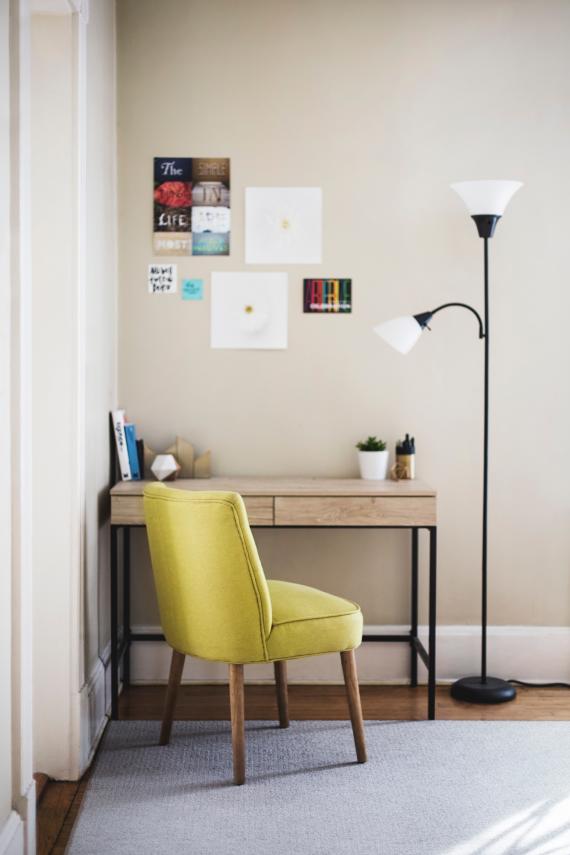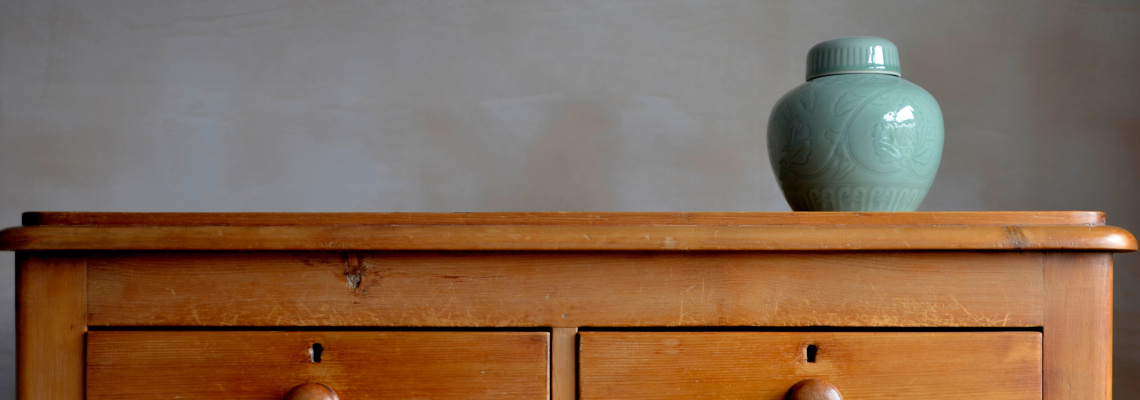Are you surrounded by too much stuff? Do you still have clothes from bygone era’s haunting you when you open your cupboard? Tupperware containers (without lids) spilling out of kitchen units? What about that one drawer (or maybe 2 or 3 if you’re like some) that won’t close because it’s filled to the brim with useless bits and bobs? Or the spare room that could never accommodate guests because it’s become a dumping ground for things never used that ‘may be useful’?…All this clutter is taking its toll on you, whether you realise it or not.
“When you put your house in order, you put your affairs and your past in order too.” Says Marie Kondo - pioneer of the KonMari method of housecleaning and author of The Life Changing Magic of Tidying Up: The Japanese Art of Decluttering and Organising. Her book isn’t your usual set of rules about how to clean and organise, it’s a guide to changing your mind-set. She believes that people can’t change their habits without first changing their thinking. And the more we learn, the more we realise that a tidy house will lead to improvements in other areas of our lives - health, career and even relationships.
CLUTTER IMPACTS YOUR HEALTH
Clutter creates stress that has major biological and neurological effects on us - our cortisol levels, our creative ability and ability to focus. In addition to mood and focus, decluttering often acts as a catalyst to taking better care of other aspects of our life.
Cortisol is a hormone produced in response to stress. If we’re not stressed, we get most of our cortisol in the morning to get us moving, but the levels ease over time and we can enjoy a more relaxed day. In a messy environment, cortisol levels don’t decline naturally and we tax our system, resulting in higher levels of depression and anxiousness. We also think less clearly and are less able to make good decisions. According to Cornell University’s study, stress triggered by clutter may also trigger coping and avoidance strategies - like eating junk food, oversleeping or binge-watching television.
WHY A GOOD SPRING CLEAN DOES WONDERS
Concentration
Neuroscientists at Princeton University found that excess stuff in our surroundings can have a negative impact on our ability to focus and process information. Clutter essentially makes your brain multitask so getting rid of it will boost your concentration levels.
Creativity
Some artists may thrive in a messy studio so this is up for debate, but dividing your attention between several stimuli (eg: a messy desk and crowded desktop) often results in increased stress and decreased creativity and productivity.
Sleep
Studies show that people who sleep in cluttered rooms are more likely to have sleeping problems. This includes having trouble falling asleep and experiencing rest disturbances.
Self-esteem
The ‘visual noise’ of clutter can make us feel depressed, but it also sends a signal that we don’t have our lives in order. A study by UCLA’s Centre on Everyday Lives of Families (CELF) shows a link between cluttered spaces and the high levels of cortisol in female home owners. (Men don’t seem to have the same problem!)

Letting go of the past
We collect things for many reasons - one being the sentimental value an object has. Going through belongings can be an emotional roller-coaster and sometimes things can bring back negative feelings. Get rid of the bad vibes and throw it out!
Better health
Researchers at Indiana University found that people with tidy houses are healthier than those with messy houses. People in tidy houses prove to be more active and stress levels are lower. As mentioned, high cortisol levels can seriously affect our health, including organ damage, the suppression of our immune, endocrine and reproductive systems, slowing our metabolism and disrupting of our sleep cycle.
Good diet
Researchers at Florida State University reveal a link between hoarding and obesity, noting that ‘people with extremely cluttered homes are 77% more likely to be overweight’. In an organised home, there is more time to plan and more space to prepare healthier meals.
Clutter is something we all have to deal with, but it can be controlled. Finding ways to clear out our excess belongings can give us a sense of power and a free mind, leaving us room to create and experience life without our stuff getting in the way.
“In essence, tidying could be the act of restoring balance among people, their possessions and the house they live in” – Marie Kondo. So let go, throw away or donate to charity - but aim to live in clean, clutter-free spaces and enjoy the many, many benefits.

Comments